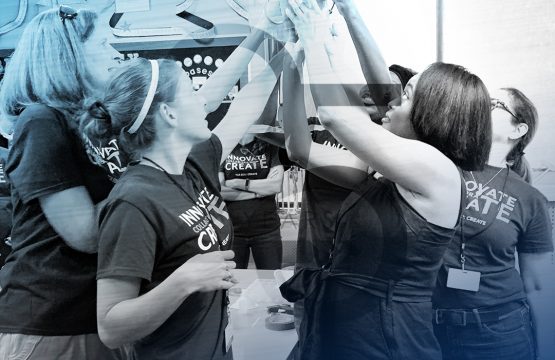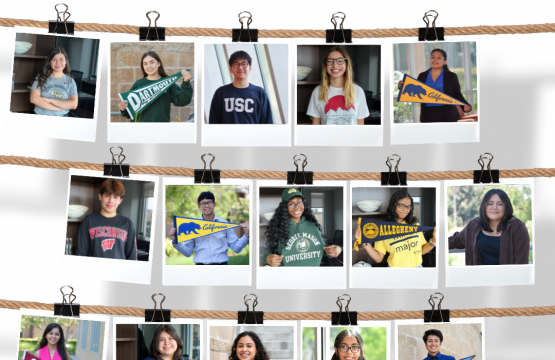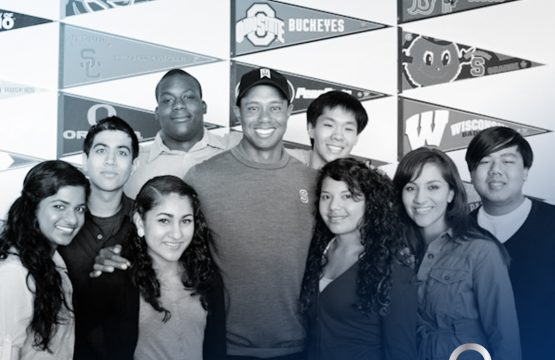Student Spotlight: How a class in Raspberry Pi is sparking student curiosity and career exposure
At just 14-years-old, Christopher “Topher” Cornell loves to take on new challenges. In the year-and-a half that he’s been a TGR Learning Lab student member, Topher has joined numerous classes exploring topics from graphic design to app development and forensics. A high school freshman at Cambridge Virtual Academy, Topher partook in the TGR Learning Lab’s Pi-ology class this summer and had the opportunity to work with a Raspberry Pi for the first time. Learn more about his hands-on experience with the Pi and how he plans to incorporate what he’s learned into his possible future career!
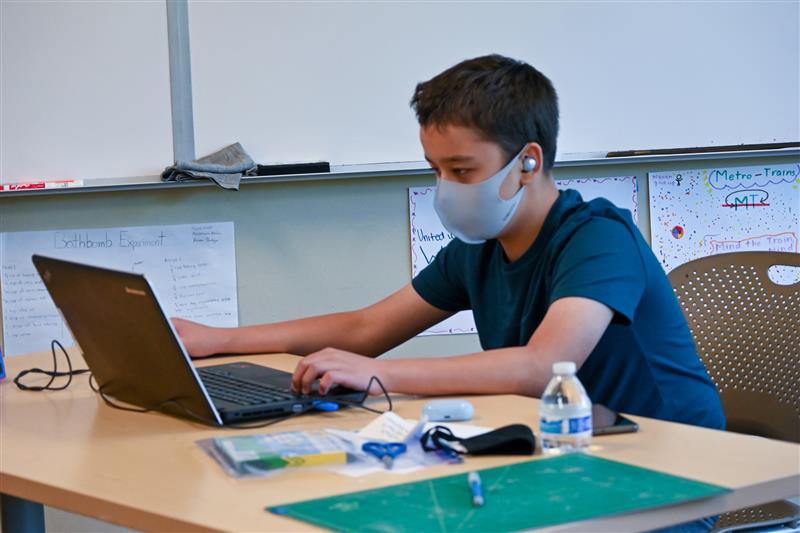
TGR Foundation: We’d love our readers to get to know you. How would you describe yourself?
Christopher Cornell: I would describe myself as a self-motivated and friendly teen who likes playing baseball, soccer, taking TGR Learning Lab classes and working on challenging assignments.
TGRF: When did you start attending classes at the TGR Learning Lab?
CC: I have been attending classes since January 2020. The first couple of classes I took were Forensic Files and Intro to the Dream Design Develop Lab. In Forensic Files, we learned about how to search for fingerprints and we even studied a fake crime scene. In Intro to the Dream Design Develop Lab, I learned how to code from scratch and make my own 3D printed figures.
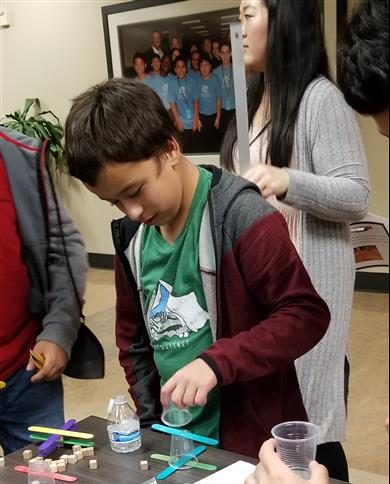
TGRF: What have been some of your favorite in-person and virtual TGR Learning Lab classes you’ve participated in and why have you enjoyed them?
CC: My favorite classes so far have been the graphic design class and the What’s “App”ening in Computer Science class. I enjoyed these two classes because I was able to learn about different types of technology. In graphic design, I created pins for myself and my family. In What’s “App”ening in Computer Science, we used computer science software such as AppLab on Code.org to engage in hands-on activities.
TGRF: What made you decide to sign up for TGR Learning Lab’s Pi-ology: Computing with the Raspberry Pis class?
CC: While I have taken other computer science related classes, I decided to sign up for Computing with Raspberry Pi because the class seemed interesting and I wanted to explore and challenge myself with new computer components.
TGRF: Share something interesting or new you learned from the Raspberry Pi class.
CC: I learned how to assemble and disassemble a Raspberry Pi kit. It was hard at first but I got the hang of it once I assembled and disassembled it a few more times.
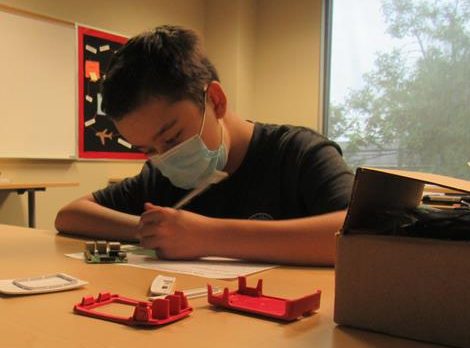
TGRF: What’s something that challenged you during the class?
CC: Something that challenged me during the Raspberry Pi class was a battery-powered miniaturized motor. The goal was to assemble the motor which I did using the Raspberry Pi, batteries, wires and alligator clips. After tinkering with the assembly parts, the motor powered up. My experience with the Pi was challenging yet fun. I felt very encouraged and happy when I powered up the motor.
TGRF: Was this your first time working with a Raspberry Pi? If so, tell us what it was like working with it and handling all the parts.
CC: It was my first time working with a Raspberry Pi and I enjoyed every second of it. Using the Raspberry Pi and its features was pretty easy. The Pi is like a mini computer. I plugged it into a small screen and it came to life. It had internet access and software for programming. My experience with the Pi was amazing! Before taking the class, I never worked the Pi before. I was amazed by how many electronics you can make with just a Raspberry Pi.
TGRF: Tell us about a project you worked on during the class. Are there future projects you would like to work on using the Raspberry Pi?
CC: One of my favorite projects was assembling the motor using the Pi. In the future, I want to work on a video game console that can convert a game that you see on screen into a 3D model using eye lenses with the Raspberry Pi.
TGRF: How might you use the Raspberry Pi to solve a problem in your community?
CC: I might use the Raspberry Pi to create an underground garden using solar panel lights and using the Pi to power the solar panels along with the sun’s energy. My solution can benefit my community by growing vegetables underground, especially at times when the weather is too hot.
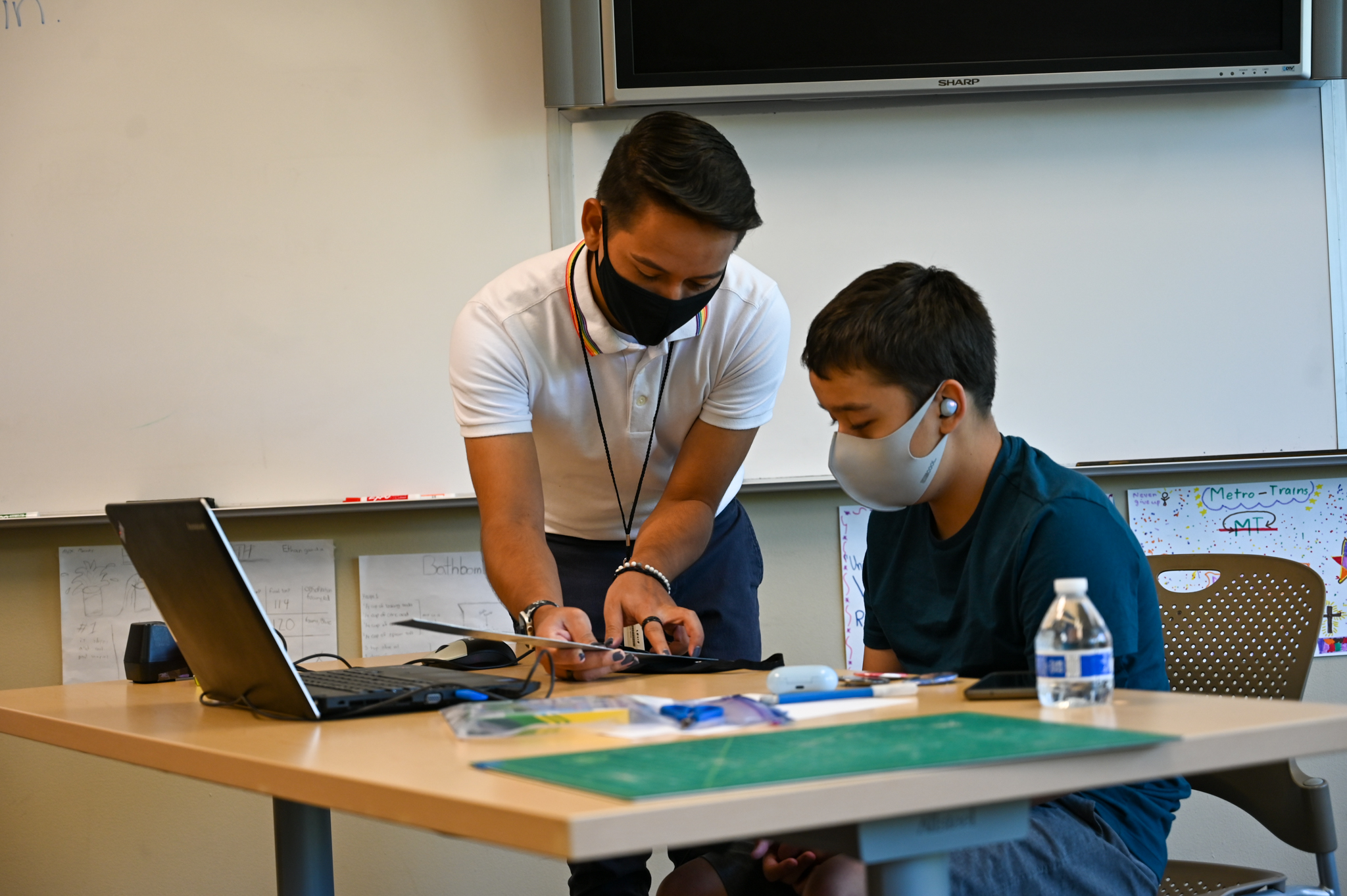
TGRF: Why do you like being a TGR Learning Lab student?
CC: I like being a student at the TGR Learning Lab because I get to participate in fun, creative and unique classes that are not typically offered in school. The TGR Learning Lab offers me hands-on classes, exposes me to high-quality career paths and new and innovative lessons in STEM.
TGRF: Did the Raspberry Pi class introduce you to new careers in computer science?
CC: Yes, the Raspberry Pi class did introduce me to new careers. I learned about STEM coding jobs like robotics, software engineering, and Java development. Robotics is a field that implements computer science and engineering into one. It involves designing, construction and use of robots. Software engineering is an application that approaches the development of software in everyday software. Java development is a high-level job that is based on coding on JavaScript.
TGRF: What is your dream job?
CC: A dream job of mine is being a barista at Starbucks. I would create and serve new drinks for people to enjoy. Possibly someday, I might open up my own coffee and tea shop where I can use the Raspberry Pi to build a self-coffee vending machine!
Building student success for 25 years.
Held at the TGR Learning Lab in Anaheim, California, Pi-ology: Computing with the Raspberry Pis, was offered at no cost this summer to high school and middle school students within the surrounding community. This course was offered through the generosity of Broadcom Foundation and Raspberry Pi Foundation. Registration for virtual courses is now open; click here to learn more and register.
For more information on how to support our programs and students visit TGRFoundation.org.
